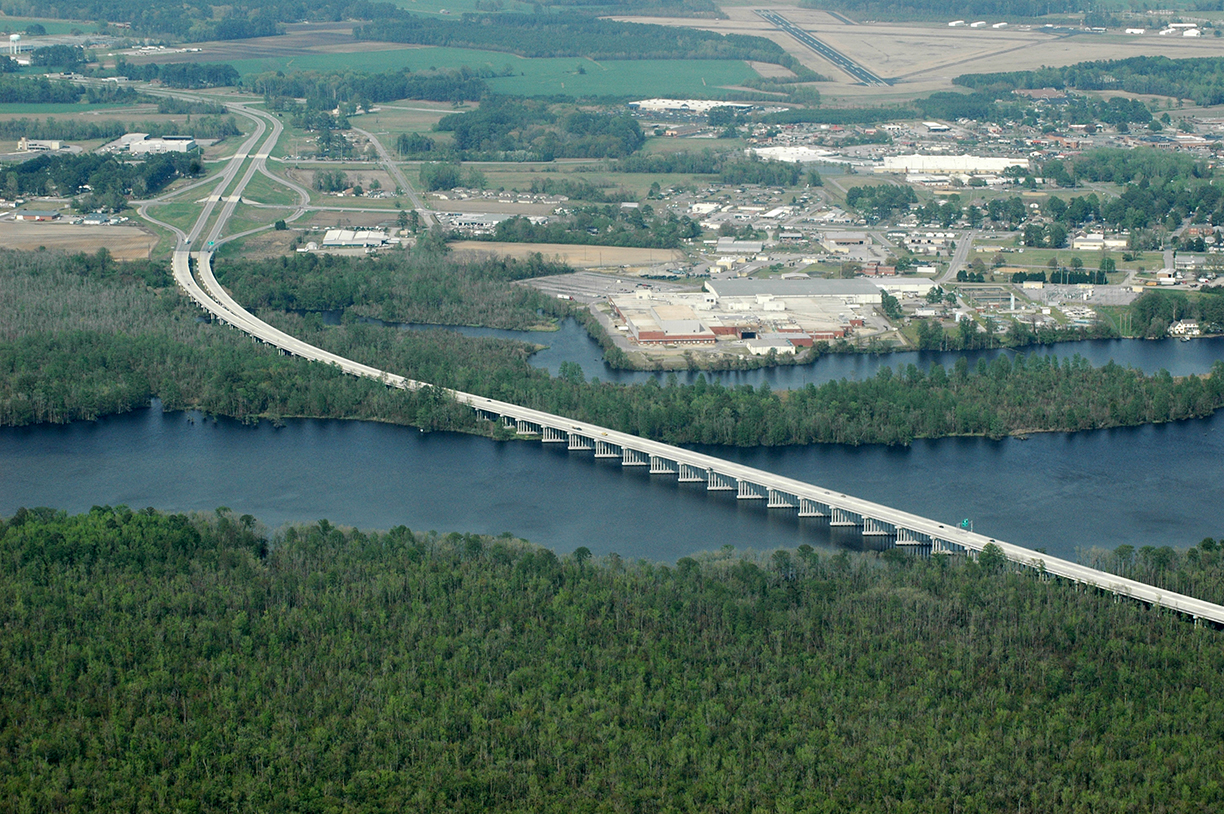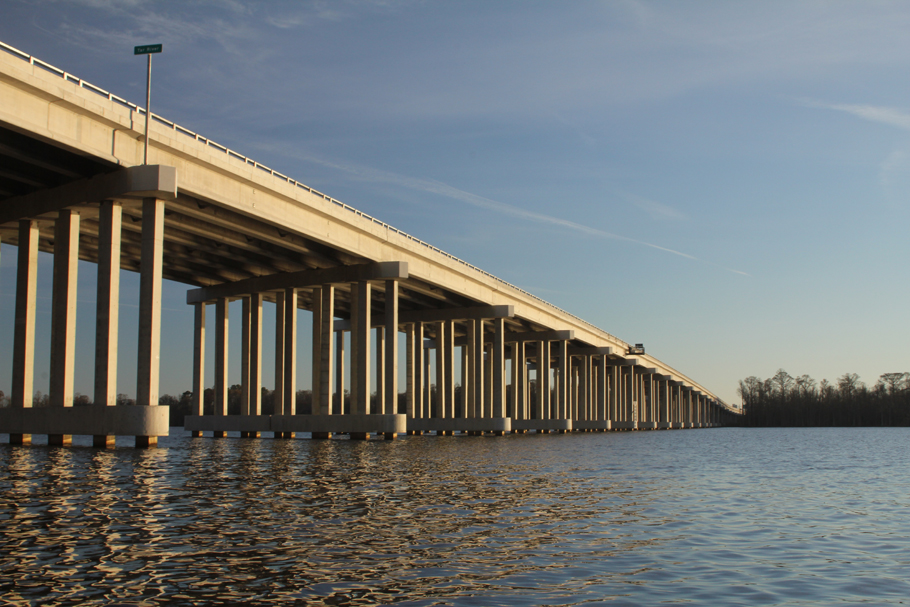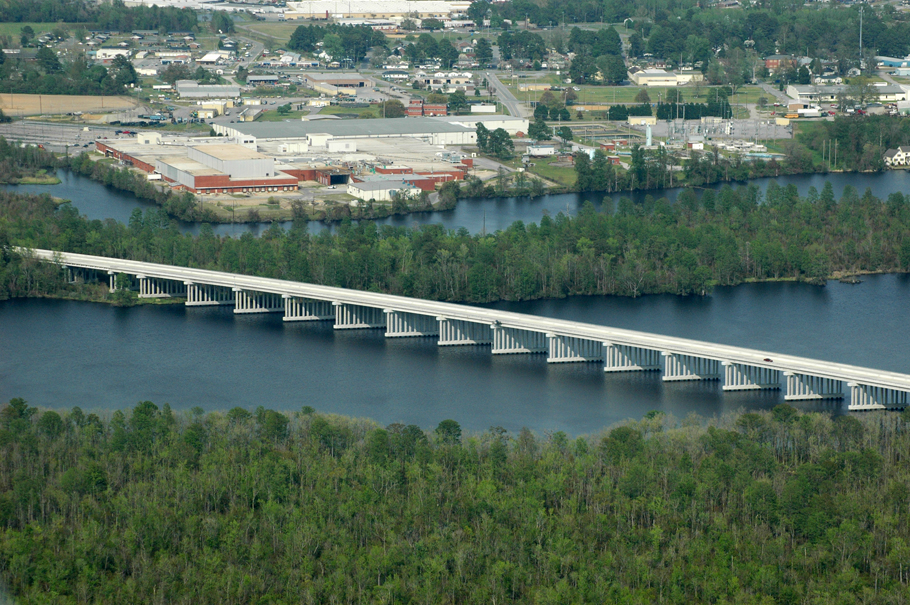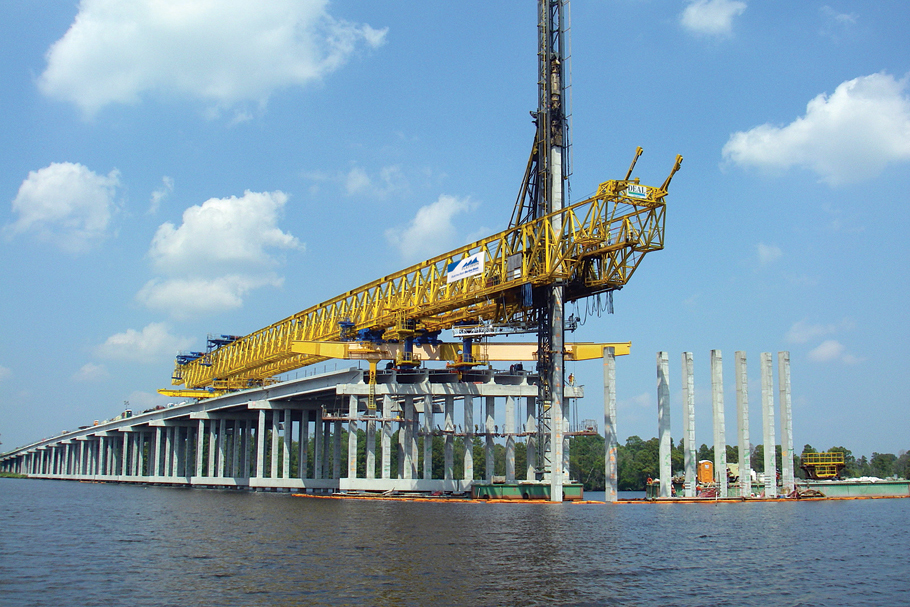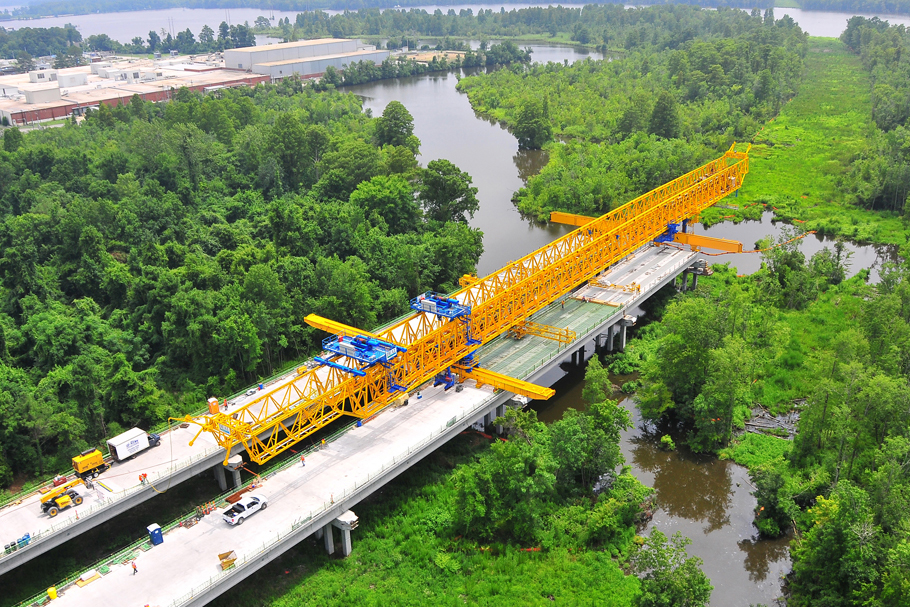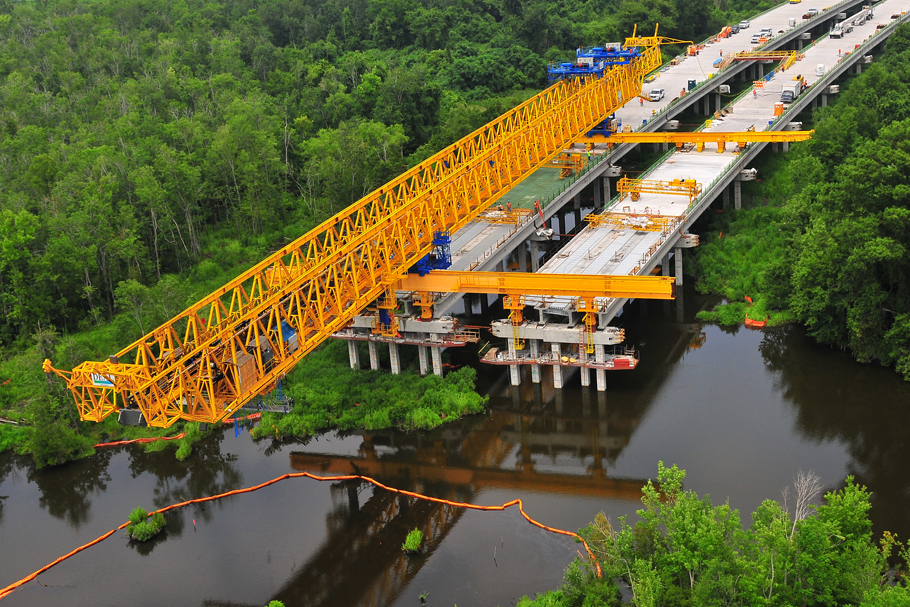Building the Washington Bypass
A Flatiron-managed joint venture is responsible for a 6.8 Highway 17 bypass around Washington and Chocowinity, North Carolina, including a three-mile bridge over the Pamlico-Tar River and environmentally sensitive wetlands.
To ensure minimal disturbance to the surrounding environment, Flatiron developed a variation of a top-down construction technique. The new patented Tilting Lead Gantry enabled the team to build the bridge in an assembly-line fashion. This efficient and eco-friendly process enabled the team to complete the project seven months ahead of schedule and within budget, performing more than 680,000 man-hours of work with minimized lost-time incidents.
In this span-by-span construction method, all bridge work was preformed from cantilevering, self-contained gantries, including driving the precast piles, building the bent caps, erecting the 120-foot-long precast girders and pouring the deck. The newly constructed permanent structure was then used for personnel access and material deliveries. The structures were constructed without temporary access trestles, thus significantly reducing environmental disturbances.
Patented, proprietary top-down construction technique to minimize footprint over wetlands
8 miles of four-lane highway through environmentally sensitive terrain
Two major interchanges and one three-mile long bridge

